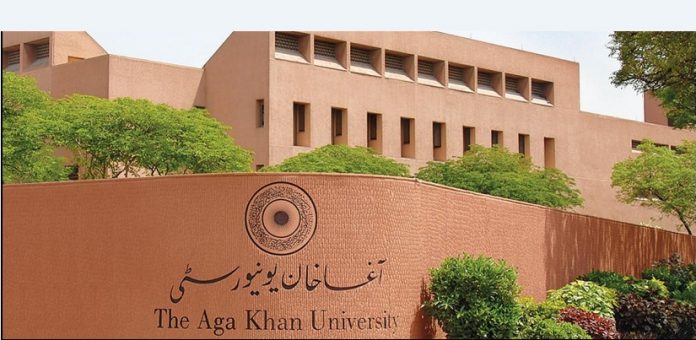Karachi (Muhammad Yasir)
The Aga Khan University, in partnership with the Institute for Global Health and Development at Aga Khan University (IGHD-AKU), Sustainable Solutions Development Network Pakistan (SDSN-PK), and the Aga Khan Development Network (AKDN), hosted an annual conference titled “Climate Change, Health, and Environment: Opportunities for Change”.
The event brought together visionaries and thought leaders from all over the world to serve as a shining example in the fields of environmental studies, health and climate change. Highlighting the significance of the conference, Dr Zulfiqar Bhutta, Director at IGHD-AKU said, “For young people in the world, particularly students, trainees, those who have decades to go still, this is probably the most important issue in global health as it relates to their future.”
Distinguished speakers and luminaries, including Dr Sanjay Wijesekera, Regional Director for UNICEF Regional Office for South Asia (ROSA), Dr Maureen Lichtveld, Dean, School of Public Health, University of Pittsburgh, USA, and Dr Jill Baumgartner from McGill University, Montreal, graced the event with their insights and expertise.
Dr Sanjay Wijesekera, in a thought-provoking keynote address, underscored the urgency of addressing climate change issues, stating, “By 2050, nearly 6 billion people are predicted to be directly affected by climate change, we must build a climate resilient and environmentally sustainable health system to protect children and their families against public health emergencies and health risks.”
Echoing his sentiments, Dr Jai Das, Assistant Director IGHD-AKU, said, “The impact of climate change on environmental degradation and human health is profound, and it has been recognized as an existential threat to humanity.” Participants engaged in insightful discussions, sharing innovative solutions and research findings that contribute to the evolving discourse on climate change, health, and environmental sustainability.
The exchange of knowledge and ideas promises to catalyze positive change and inform future initiatives in these crucial areas. Dr Sulaiman Shahubuddin, President of the Aga Khan University said, “Climate change is a problem like no other. It’s the proverbial problem that seems impossible to solve. This conference signifies our commitment to be at the forefront of addressing the pandemic of climate change. It underscores the pivotal role of academic and research institutions in forging sustainable solutions for our global community.
Together, we can pave the way for transformative solutions.” The conference at the Aga Khan University stands as a testament to the power of collective action and collaboration in confronting the most pressing issues of our time.






